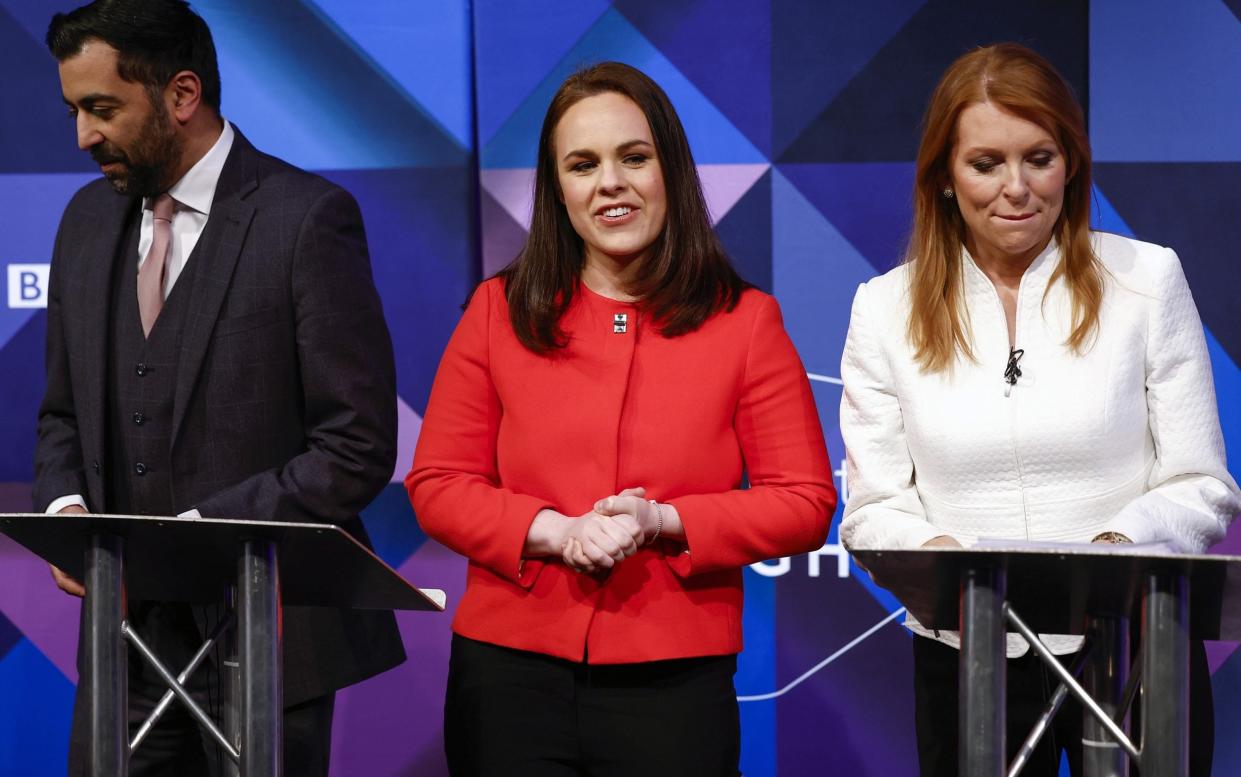This SNP implosion will put Labour into No 10

- Oops!Something went wrong.Please try again later.
- Oops!Something went wrong.Please try again later.
- Oops!Something went wrong.Please try again later.
For much of the past decade, Scotland has managed to opt out of the normal political rules that govern most countries. There were the eye-watering swings to the SNP at the 2015 general election. Then there were the double-digit poll leads enjoyed by the nationalists year after year, leads that were not even slightly troubled by the lack of delivery by the Scottish government on a series of vital domestic services.
The benefit of the doubt given to the SNP became the defining – and, for its opponents, the most frustrating – element of the political scene north of the border. Now, it could all be about to change – with dramatic consequences for the politics of the whole UK.
There is no guarantee that even the departure of Nicola Sturgeon from the stage and the car crash of the leadership contest that has followed will consign her party to history, or even to opposition. But if we have learned one thing about politics in recent years, it is that the lack of a precedent is no guide to what might still happen. And if precedents are your thing, Scottish Labour’s wipe-out in 2015 can be used as a template for what might yet happen to the Scottish nationalists.
It is at least possible that the SNP is about to return to the fringes of Scottish politics, where it has spent the vast majority of its existence.
Consider the mounting threats the party now faces. It is riven, not on independence itself, but on how it gets there. Gradualists are lining up against fundamentalists in a way not seen since the 1970s. And there are other splits too, on culture issues such as gender recognition reform, and on the relationship a future independent Scotland will have with Nato.
It’s unlikely that any of the three candidates vying to replace Sturgeon will be capable of binding the warring factions together. If committed Christian Kate Forbes wins, the party is likely to lose much of its progressive wing of younger activists, who would probably opt to join the Greens or even start a new party. Humza Yousaf, the health secretary, is even less likely to possess the political skills needed to lead or unite such a fractious movement. Added to the possibility that the party may be about to be engulfed in devastating legal troubles over donations, and this could be existential for the SNP. And the main beneficiary of such a schism would be Labour.
It is Labour, not any other opposition party, that the SNP has always feared the most – and for good reason. The party may be a shadow of its former self but it maintains a core vote right across west central Scotland where it once held sway. There is no other party challenging the SNP in these key heartlands. Heartlands that only a few years ago were Labour red.
Many of those yellow seats have large majorities. But each of them is vulnerable in the event that the swing in support from SNP to Labour reaches a crucial tipping point. That’s when the red threat becomes an onslaught; that’s when the SNP reverts once more to being the party of the north east and a few patches across the islands.
So long as bitter memories of the 2014 independence referendum remain at the forefront of voters’ minds, they may be reluctant to return to Labour en masse, still resentful are they that their traditional party chose to oppose independence. But 2014 seems a very long time ago and independence is no longer seen as the shiny, universal cure for all ills that it once was.
That’s why it’s in the interests of the SNP to talk up another referendum, even if they know it’s not going to happen. To keep the Labour threat at bay, voters must be repeatedly reminded of the Great Betrayal of 2014.
But if even the party of independence can’t secure “freedom”, and if even those at the very top of the party can’t agree how further progress could be made, if the party in government can’t deliver on basic services, what is the point of holding a grudge against Scottish Labour? Indeed, protest voters may come to think that the best way to give London a kicking is not to back the nationalists, but to kick out the Tories instead.
The danger for the SNP is not just that they’ve lost their most effective leader; it is that the voters of Scotland might start paying attention to what is happening in the party, and what is not being delivered in government. And the danger for the Tories is that, if Labour can win back many of the seats it lost in 2015, the path to a majority government will be a whole lot easier.

